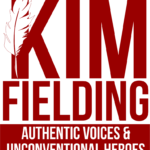This month I want to talk about the importance of length. No, not that—get your mind out of the gutter! I mean story length.
There are no set industry length standards for different kinds of fiction; different publishers (and other sources) categorize stories in different ways. Here are the definitions I use:
Flash fiction – under 500 words
Short story – 500 to 15,000 words
Novella – 15,000 to 50,000 words
Novel – 50,000 or more words
My definitions are fairly typical, although some specific genres have variation. For example, category romance tends to be short, so something in the 40 thousands might be considered a novel there. On the other hand, sci fi and fantasy are often very long. Dune, for example, contains almost 200,000 words. Wikipedia informs me that the uncut version of The Stand (there you are with your mind in the gutter again) is over 500K, and War and Peace clocks in at over 600K (but I’ve read 19th century literature in Russian so I bet it feels even longer).
All of these story forms have equal literary merit. But the way a story is constructed varies a lot between forms. Obviously, plots get more complex and the cast of characters gets larger in a longer piece. The rhythm is very different too. In addition, the weight of words changes. In a short piece—especially flash fiction!—every single word matters, and each word has to do a bigger job.
Consider these opening lines from my own recent short, “The Hunter.” (Which you can get free on my website.) The whole story is around 4K words.
“Have you some to share?”
The man came out of the woods that morning as I hung thin slices of venison to dry over the fire, and he stood, barefoot, in the small clearing in front of my hut. He was a stranger—a rare thing in this area—and his every aspect spoke of hunger: sunken cheeks, tawny eyes sunk deep in their sockets, a too-lean body under a filthy shirt and threadbare leggings.
My fauchard was propped close-by, its blade reflecting the flames. I always keep it near at hand, so that even when I’m fast asleep, I know where to reach for it. But I left it resting against a large stone as I stared at him.
If I’ve done my job, this passage establishes the relationship between the characters (strangers); informs us that the setting is near the woods and probably not modern; physically describes the man who’s not the narrator and suggests his desperate situation; and tells us something about the narrator’s job and personality too. All in 120 words.
Here’s the first sentence of Kafka’s “The Metamorphosis” (translated into English):
One morning, as Gregor Samsa was waking up from anxious dreams, he discovered that in bed he had been changed into a monstrous verminous bug.
And the first lines of Poe’s “The Tell-Tale Heart”:
True! — nervous — very, very dreadfully nervous I had been and am; but why will you say that I am mad? The disease had sharpened my senses — not destroyed — not dulled them. Above all was the sense of hearing acute.
Look how much those few words do!
Another important difference between story formats is the emotional impact. When you reach the end of a good novel, you should feel sad that it’s over, but you should also feel as if the plotlines are solved the characters have completed their arcs. You’ve lived with that story for a while, so now it’s become like a roommate or family member; you know it well. But short stories give you only a glimpse. Their arcs are much tighter. You’re going to know a lot less about the characters—but the story still needs to feel complete.
Short stories can be a lot harder to write than novels. It’s like the distinction between creating an exquisite, beautiful little pastry and concocting a hearty stew. Both require effort, but in different ways, and the experience of eating them will be very different.
Or as the saying goes, it’s not the size that matters, but how you use it.
***
 Kim Fielding is the bestselling author of numerous m/m romance novels, novellas, and short stories. Like Kim herself, her work is eclectic, spanning genres such as contemporary, fantasy, paranormal, and historical. Her stories are set in alternate worlds, in 15th century Bosnia, in modern-day Oregon. Her heroes are hipster architect werewolves, housekeepers, maimed giants, and conflicted graduate students. They’re usually flawed, they often encounter terrible obstacles, but they always find love.
Kim Fielding is the bestselling author of numerous m/m romance novels, novellas, and short stories. Like Kim herself, her work is eclectic, spanning genres such as contemporary, fantasy, paranormal, and historical. Her stories are set in alternate worlds, in 15th century Bosnia, in modern-day Oregon. Her heroes are hipster architect werewolves, housekeepers, maimed giants, and conflicted graduate students. They’re usually flawed, they often encounter terrible obstacles, but they always find love.
After having migrated back and forth across the western two-thirds of the United States, Kim calls the boring part of California home. She lives there with her family and her day job as a university professor, but escapes as often as possible via car, train, plane, or boat. This may explain why her characters often seem to be in transit as well. She dreams of traveling and writing full-time.
Follow Kim:
Website: http://www.kfieldingwrites.com/
Facebook: http://facebook.com/KFieldingWrites
Twitter: @KFieldingWrites
Email: Kim@KFieldingWrites.com
Newsletter: http://eepurl.com/bau3S9
A complete list of Kim’s books: http://www.kfieldingwrites.com/books/

